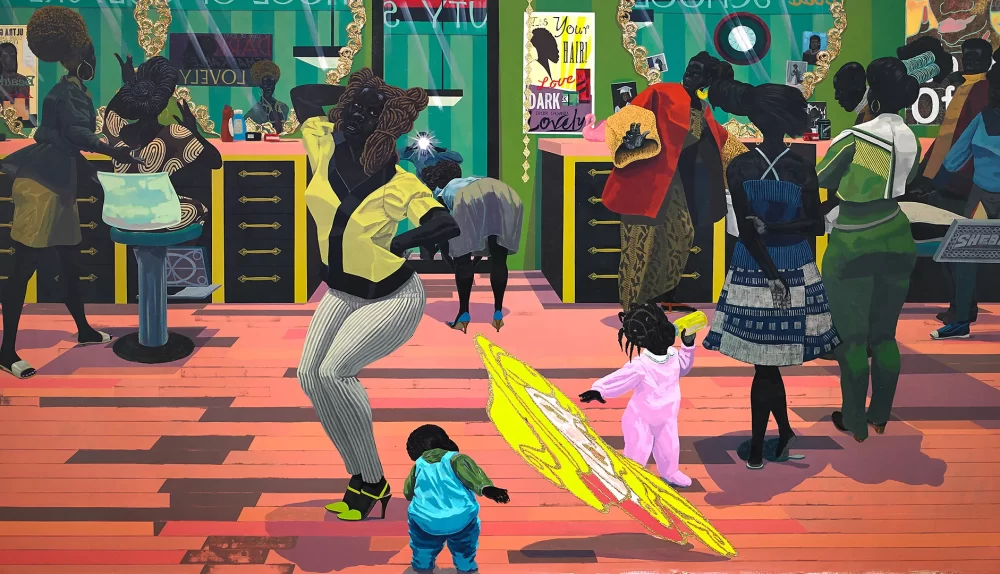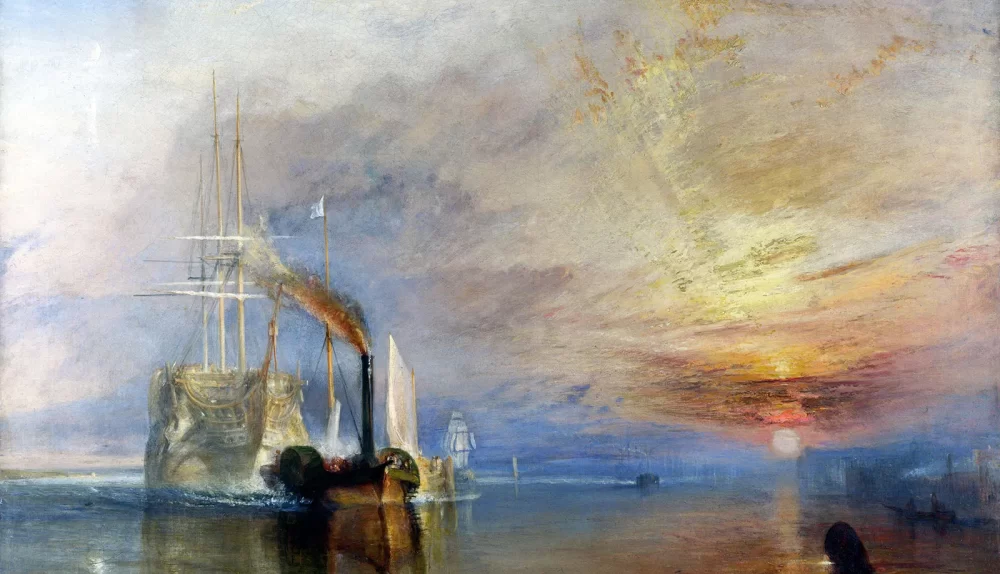Opening gala performance of the season – opera Svätopluk – prepared by the management of the Slovak National Theatre (SND) on the occasion of the 20th anniversary of the death of composer Eugen Suchoň and the 1,150th anniversary of the arrival of Cyril and Methodius in Great Moravia. The work maps one of the most important periods of our history, which indelibly predetermined our historical development. In the image of Svätopluk, the creators of the opera offer a study of a monarch longing for the unity of his empire. This central character is not understood schematically. They give him the painful features of a man who fails in his efforts. The author honed the musical and dramatic “edge” of this work in the sharp conflict between paganism on the one hand and the new Christian message on the other. However, Suchoň’s Svätopluk is by no means just a historical canvas describing Slavic history. After all, the work ends painfully, tragically – and culminates with the prediction that it will take a whole thousand years for the desire for freedom and unity to be fulfilled.
On the occasion of the 200th anniversary of Giuseppe Verdi's birth, the SND Opera, directed by Martin Schüler, will present the popular opera Rigoletto, which will feature the Slovak singing elite along with high-quality foreign guests. One of the most famous works by the great Italian master needs no special introduction. Victor Hugo's drama The King is Having Fun was an ideal subject for Verdi to portray great passions, a socially critical perspective and a touching personal line. The main character, the court jester, alias the lord's servant Rigoletto, is faced with a dilemma: to survive at all costs without existential harm in an immoral environment, to ignore the consequences of his behavior or to resist, as Count Monterone proved, because in life every action is paid for, sometimes very dearly, by the loss of the most valuable thing - in this story, the beloved daughter Gilda.
The upcoming season at the SND Drama Theater presents a parade of great classic titles – theatrical adaptations of Gustave Flaubert's novel Madame Bovary (dramatization by Iva Klestilová, directed by Eduard Kudláč) and Jana Eyre by Charlotte Brontë (dramatized by Anna Saavedra, directed by Marián Amsler). Both titles bring to the stage the story of strong women who seek their happiness outside of social conventions.
Madame Bovary – that's Emma, a beautiful young lady raised in a convent who marries the village doctor Karol. However, their marriage is not a happy one. Karol is not a bad man. On the contrary. He is good, kind, trusting and even shy. However, he does not understand his wife's soul and does not realize that unless he finds a way to make her happy, he exposes her to the temptation to seek happiness with someone else.
Sympathetic, naturally humble and at the same time strong, self-confident Jane Eyre also overcomes the rigid social restrictions of her time. With the harmony of her external and internal beauty, she represents a bright counterpoint not only to the suffocating grayness of the rigid society that has been trying to deform her since childhood, but also to the dark secrets and spontaneity of Rochester - the man she loves devotedly despite seemingly insurmountable obstacles. The theme of self-confidently and purposefully chosen sacrifice as the only path to purification and achieving the goal is surprisingly uplifting even today, or especially today.
The long-awaited premiere of the SND Ballet before the end of the year will be Tchaikovsky's The Nutcracker. The premiere of the children's ballet with a Christmas theme is a return to the traditional and most awarded version of the Russian choreographer Vajnonen. In a narratively generous production, full of artistically rich images, as well as technically demanding variations, the child audience will embark on a fairy-tale journey through the Christmas story, interpreted by soloists and members of the SND Ballet choir and students of the Eva Jaczová Dance Conservatory in Bratislava.
New season at the Slovak National Theater opens with classics
The opening gala performance of the season – the opera Svätopluk – commemorates the 20th anniversary of the death of its composer Eugen Suchoň and the 1150th anniversary of the arrival of Cyril and Methodius in Great Moravia. This monumental historical drama is not only a celebration of the famous history of Western Slavs, but also a convincing musical drama, with a complex inner world of the leading characters. Svätopluk faces a dilemma: to fight for the new Christian future, or to give way to the Pagans; to follow the heritage of Rastislav, or to remain in power at any cost? Svätopluk also experiences the personal drama of a king who committed serious moral crimes on his way to power. His reconciliation with God and his own conscience comes as a culmination of the drama at the end, in the form of a prophetic wisdom and leniency.
On the occasion of the 200th anniversary of Guiseppe Verdi's birth, the Slovak National Theater Opera stages a new production of Rigoletto directed by Martin Schüller with a cast featuring leading Slovak singers and excellent foreign guests as well. There is no need to introduce one of the most famous works by the great Italian maestro to an opera visitor. Victor Hugo's drama Le roi s'amuse was an ideal story for Verdi, containing great passion, a critical view of society and a touching personal line. Rigoletto, the leading character, a court's jester alias minion of the noblemen, has got a dilemma: to survive with no harm in a shameful environment, to ignore the consequences of his own behavior, or to protest as Count Monterone did. One has to pay a price for each action in life, and sometimes the price is very high, and means losing what is most precious to us, in this story his beloved daughter Gilda.
The start of the season of the drama ensemble is dedicated to great classical works. Both Flaubert's Madame Bovary and Jane Eyre by Charlotte Brontëdepict the story of strong women looking for their happiness, breaking social norms in their times.
Madame Bovary – Emma, a beautiful young woman who received a good education in a convent marries Charles, a countryside medical doctor. But their marriage is not a happy one. Charles is not a bad man. On the contrary, he is good, nice, trusting and even shy. He does not understand his wife and he is not aware of the fact that without finding the way to make her happy, she will be exposed to the temptation to find happiness with somebody else. He is not able to reach her soul and so Emma lives her life as in a dream.
The novel Jane Eyre written by the English writer Charlotte Brontë is a story of an amiable, naturally humble, but at the same time strong Jane, who overcomes the rigid limitations of Victorian conventions. In the harmony of her outer and inner beauty she presents a positive counterpart not only against the repressive greyness of the regimented society, which has been trying to deform her, but also against those dark secrets and the spontaneity of Rochester, the man she truly loves in spite of seemingly invincible obstacles. The topic of consciously and resolutely chosen sacrifice, as the only way leading to a purge and meeting one's goal is surprisingly inspiring even today, or especially today.
The eagerly awaited new production of Tchaikovsky's The Nutcracker based on the traditional version by Vassily Vajnonen, choreographed and directed by Rafael Avnikjan and Jozef Dolinský, shall premiere in December. This Christmas-themed ballet for children returns in the traditional and highly acclaimed version of the Russian choreographer Vainonen. The visually striking production with beautiful sets and costumes and sophisticated technical variations takes children on a fairy-tale journey through the popular Christmas story together with the Nutcracker and soloists and ensemble of the Slovak National Theater Ballet and students of Eva Jaczová Dance Conservatory in Bratislava.

































